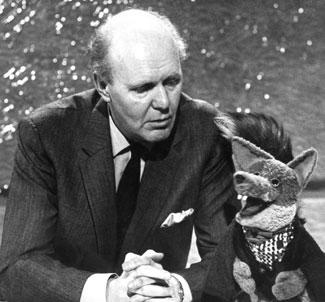The World Might Be Better Off Without College for Everyone
The above link leads to a very interesting article in "The Atlantic" which is from the book "The Case Against Education: Why the Education System Is a Waste of Time and Money" written by George Mason University economics professor, Bryan Caplan.
Caplan makes a convincing case that while a degree is very definitely of economic value to those who hold them,
and the organizations that dispense them, it is far, far less clear that it is of real value to the organizations that employ the holders of the degrees, and, more importantly, society at large.
According to Caplan, a college degree signals employers that a job applicant has enough of the
right stuff to stick it out for four years, devoting less time and effort, than ever before, to obtain a credential that is becoming ever easier to achieve. As an employer, I can tell you this is a signal of very limited value and particularly if you are not searching strictly within the pool of
first-job applicants.
While the drive and determination to make it to a degree are not insignificant characteristics that are meaningless to the practical requirements of a job, in today's university environment, they hardly need to be Herculean. Devoting 27 hours a week to the endeavor of achieving a degree is not proof that the applicant will perform well in a 40 hour or more work week on the job, and the performance standards of most employers far exceed those of college professors and administrators. (At it's most ridiculous level this sad fact bears out when employers need to provide college-educated employees with remedial letter writing training)
In reality, the degree is a less a signal that the person holding it has the
right stuff as it is that the person who does not may have too much of the
wrong stuff. Clearly, though the latter relies on generalization and common assumptions. There are all sorts of reasons why a 19 or 20-year-old might find themselves dropping out of college and while a lack of self-discipline is probably the primary one, it's not the only one. Moreover, because a young person crashes and burns upon getting his or her first taste of
freedom doesn't mean that they will never wise up and get back on track.
On top of the dubious value of a degree to signal strength of character, not only does it fail to signal that the applicant is qualified to meet the specific technical requirements of the job they seek, there is little to no evidence that it has actually prepared them to succeed at it.
The volume of applications received by companies for open positions is often staggering and, given the relative ease of applying online for a position, outlining the specific qualifications required simply doesn't stop a great many people from taking the approach of "It's worth a shot. What do I have to lose?" even though they don't possess the required qualifications. Therefore, basic screening is usually necessary to reduce the avalanche of received resumes to a manageable amount. A great many companies make the first cut based on whether or not the applicant has a degree for the signal it sends them. Can it cause them to pass on a diamond in the rough? Absolutely, but they have to start somewhere and the option of interviewing every job applicant is not realistic.
Since, however, the presence of a degree doesn't mean much more than confirmation that the applicant likely has a minimal level of determination and perseverance, it seems clear that the expense involved with obtaining the means to get past the first filter is far greater than the reliability, of that means, as a predictor of success. It doesn't make economic sense...unless you are the applicant with a college degree or the university selling it.
The employer only needs a first cut filter that will significantly reduce the number of applications ( the degree filter can achieve reductions by sometimes as much as 50%.) Such filters are bound to be basic and binary and if there was one with the same level of reliability but which involved far less expense, employers might use it, but they are not directly incurring that expense and few if any Human Resource departments bother to weigh the impact of their recruiting practices on society at large.
So great amounts of money are being spent on a process that doesn't actually prepare anyone for any but a relatively small number of jobs. This leads to students burdening themselves with incredible amounts of debt which the compensation of the jobs the degree enables them to obtain isn't sufficient to relieve them of the burden for most or all of a key period of time when they are trying to build the foundation of their lives: getting married, starting a family, buying a house etc. And it's not only the students who are heavily burdened, it's their parents, their spouses and children and, indeed, the entire national economy.
A broad spectrum, liberal arts education can be of considerable value to both the individual and society, but the reason young people seek college degrees and why those around them encourage them to do so, is not because of the promise of being a more well-rounded person, it is to be able to land a lucrative job upon graduation.
A degree will enable someone to get a better paying job than someone without one, but it's of little value in terms of their success in that job and it has staggering costs for the individual and society at large.
The system is broken. How do we fix it?

